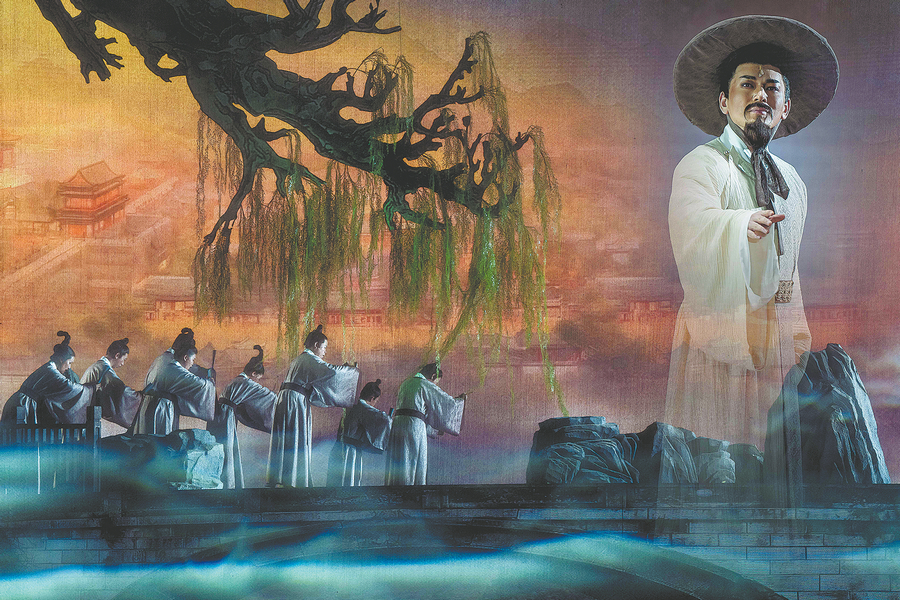Singing his praises, across the ages
A new folk opera explores the virtues that an exiled official embodied more than a millennium ago, Cheng Yuezhu reports.


Despite Liu's aspirations to contribute to the imperial court, he faced an ill-fated political career. He was demoted and exiled from the then capital, Chang'an, which today is Xi'an, Shaanxi province.
From 805 to 815, he was exiled to Hunan province's Yongzhou and was subsequently exiled to the even more remote Liuzhou, where he served as an official until his death.
While he was dissatisfied with his position and longed to return to the capital, he took measures to popularize Confucianism, free the poor from servitude and cultivate the wastelands. This changed locals' lives, and he was given the sobriquet, "Liu Liuzhou".
The opera Liu Liuzhou premiered on April 11 at the China National Opera House in Beijing.
Liu is considered one of the eight most influential essayists of the Tang and Song (960-1279) dynasties and is a household name in China. Chang believes it is meaningful to highlight the last years of his life, when he faced adversities yet continued to pursue his goals and ideals, embodying his inner strength and rectitude.
"The reason I chose to highlight the final four years of Liu's life in Liuzhou as the main storyline is to enable contemporary audiences to better reflect on the past and to revere history and tradition," Chang says.


















